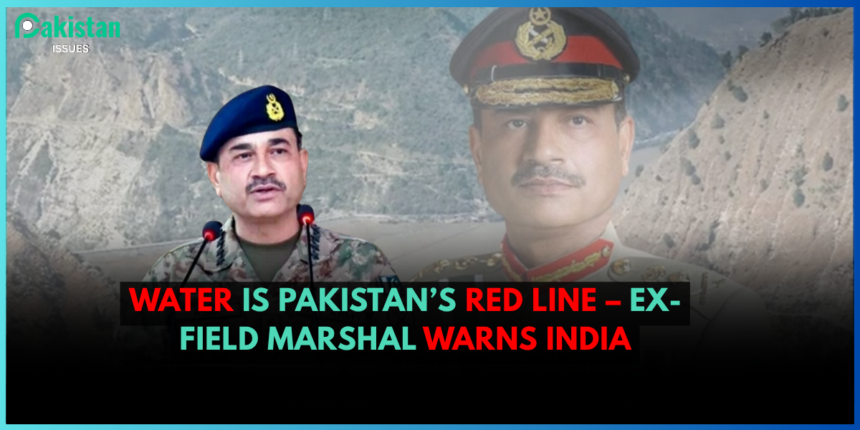Islamabad, May 29 — Pakistan has drawn a clear line in the sand when it comes to water. A retired field marshal, speaking at a national security seminar this week, issued a blunt warning: Pakistan will never accept Indian control over shared rivers.
“Water is our red line,” he said. “It’s about survival — not politics.”
His remarks come as tensions rise again over India’s continued construction of hydropower projects on western rivers governed by the Indus Waters Treaty. While India insists it is operating within the treaty, Pakistan has long argued that these projects restrict natural flow and threaten agricultural lifelines downstream.
The field marshal, who once oversaw strategic planning in the military, warned that India’s expanding footprint over river waters risks long-term instability. “We’re not talking about theory here. Millions of our farmers depend on these flows. Any disruption is a direct threat to our food and national security.”
India’s recent activity on the Chenab and Jhelum rivers, including the Pakal Dul and Ratle dams, has stirred alarm in Islamabad. Though both countries are signatories to the 1960 treaty — brokered by the World Bank — disputes over technical compliance have persisted for years.
“The spirit of the treaty is being challenged,” he said. “And Pakistan will not allow a silent takeover masked as development.”
He urged the government to escalate the issue at global platforms. “This is not a bilateral concern anymore. The international community must understand the consequences of water insecurity between two nuclear-armed nations.”
Beyond external concerns, the former general also pointed to internal failings. He called for urgent reforms to Pakistan’s own water management, highlighting losses due to outdated irrigation, poor storage, and unchecked usage. “We must defend our rivers — but we must also manage them better.”
Environmental experts attending the seminar echoed similar views. With glacial retreat accelerating due to climate change, Pakistan’s dependence on cross-border rivers is becoming even more precarious.
The message was pointed: India’s attempts to dominate upstream resources will be resisted — diplomatically, legally, and if necessary, with stronger responses.
“We’re not seeking confrontation,” the field marshal said. “But we are prepared to draw the line where it must be drawn.”
Pakistan’s stance on water has long been a sensitive issue. But with regional dynamics shifting and hydropolitics intensifying, that red line, it seems, is being redrawn in bolder ink.










